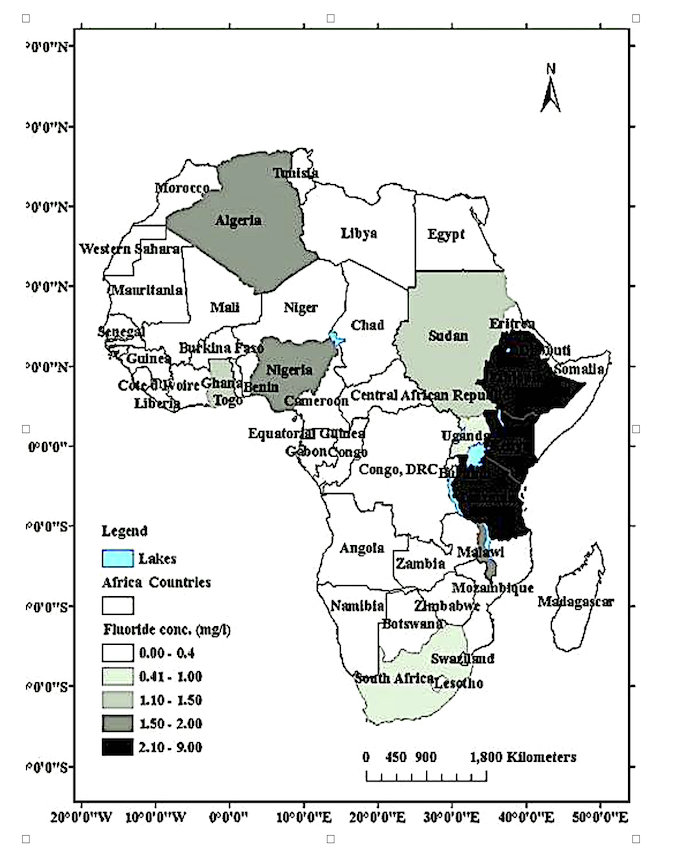Home / South Africa’s Water


Is The Fluoride In Our Municipal Water Unconstitutional?
Original text ⇒ HERE
.
.
In September 2001 the Department of Health legislated in respect of adding fluoride to South Africa’s drinking water in order to reduce the risk of dental cavities for South Africans who don’t use fluoride toothpaste.
At the time, many saw this form of mass medication as unconstitutional. Rand Water and other water boards made several submissions to the relevant ministries.
Rand Water is the largest bulk water utility in Africa and one of the largest in the world.
The water board was so concerned about this legislation that it sought indemnity from the Department of Health “against any claims arising from the fluoridation of water that may give rise to possible health implications or impact on the environment or industrial water users”.
“Municipal water in South Africa is well treated and certainly safe from the real nasties like cholera, typhoid and other frightening water born illnesses,” says Tony Marchesini, Managing Director of H2O International. “But once the water reaches your home, you really should be removing the chemicals like fluoride, especially if you already using a fluoride toothpaste. You have no idea how many chemicals have leached into your water since it was treated and at what levels they are present.”
With regard to fluoride levels, a quote from Rand Water’s explanation for their stance against fluoridation makes for salient reading:
“As water is a scarce commodity in South Africa it is recycled, and this should be considered in the overall water use strategy. Fluoridation of Rand Water’s supply at a rate of 0,5 mg F-/l will introduce 365 tons of fluoride per annum into the environment. If 0,5 mg F-/l is added to our water supply this would theoretically imply (during periods of drought or the dry season) that the effluent concentrations will also increase by 0,5 mg F-/l as fluorides are not appreciably removed through the wastewater treatment process.”
.
When the legislation was enacted, Bettina Genthe, a water analyst with Environmentek, a business unit of the CSIR, told Parliament’s water affairs portfolio committee: “We’ve got a number of factors which affect the health impact of fluoride in this country – one of these is that malnutrition makes fluoride more toxic than it is to people who are well nourished… There is no doubt that fluoride is good for teeth, and it protects against decay … but water fluoridation might not be the best way of achieving this protection.” After the briefing, Genthe said that in laboratory studies “It appears to be that fluoride can be toxic at very low concentrations to immune system cells.”
These concerns were well founded, it turns out. According to SMI Analytical Laboratory, the mineral fluorspar occurs in many areas in South Africa. “Chronic fluoride poisoning is manifested by weaknesses, weight loss, general ill health, joint stiffness, brittle bones, discolouration of teeth and anaemia.”
A study by the Water Research Commission in partnership with the University of Venda’s Department of Hydrology and Water Resources found that 85% of residents of Siloam village, Limpopo, who use borehole water that is high in fluoride, have mottled teeth as a result.
Even more concerning, a study published in the reputable peer-reviewed Journal of Epidemiological and Community Health found that “higher levels of fluoride in drinking water provide a useful contribution for predicting prevalence of hypothyroidism”. The leader of the study, Stephen Peckham, has written and co-authored more than 150 papers, chapters and books. His work is cited in another 1 300 papers. He noted, “In many areas of the world, hypothyroidism is a major health concern and in addition to other factors – such as iodine deficiency – fluoride exposure should be considered as a contributing factor. The findings of the study raise particular concerns about the validity of community fluoridation as a safe public health measure.” His study backs up results of other studies in Mexico and India that also found a link between high fluoride levels and hypothyroidism.
Most recently, a study by researchers from universities in Canada, the USA and Mexico found that “higher prenatal fluoride exposure … was associated with lower scores on tests of cognitive function in the offspring at age 4 and 6–12.”
As Nonhlanhla Kalebaila of the Water Research Commission said, at the time of the Limpopo study, “Clearly fluoride levels in drinking water higher than 1, 5 mg/l may cause multidimensional health problems, including not only the mottling of teeth and dental fluorosis but also several neurological disorders. At such elevated levels, the removal of excessive fluoride through defluoridation must be considered.”
That research was focused on borehole water, but with droughts being experienced in many parts of South Africa, we must heed Rand Water’s warning.
“We must assume that the concentration of fluoride in our water has increased,” says Marchesini. “For safety sake we urge South Africans to install a water purifier that removes the majority of the fluoride. The standard H2O systems that we have been marketing for the last twenty years remove 76% of fluoride in tap water (along with other chemicals, bacteria and heavy metals), but we also offer a more superior cartridge that removes 100% of fluoride.”
Date published:
Wednesday, 16 May, 2018
[It looks like there are also mad dentists are in South Africa! ]
HOWEVER:
South Africa‘s Health Department recommends adding fluoridation chemicals to drinking water in some areas. It also advises removal of fluoride from drinking water (defluoridation) where the fluoride content is too high.
Legislation around mandatory fluoridation was introduced in 2002, but has been delayed since then pending further research after opposition from water companies, municipalities and the public.


 Reprinted by:
Reprinted by:

 Reprinted by:
Reprinted by: The National Bird of South Africa is the BLUE CRANE
The National Bird of South Africa is the BLUE CRANE



